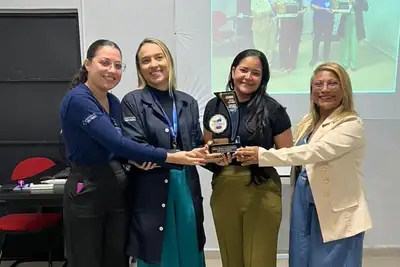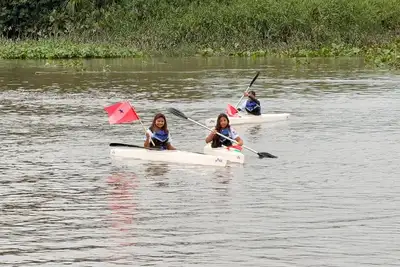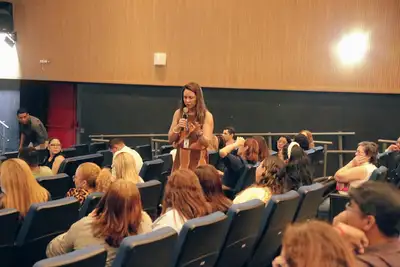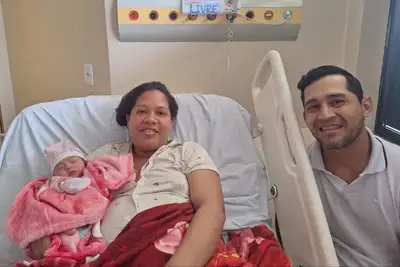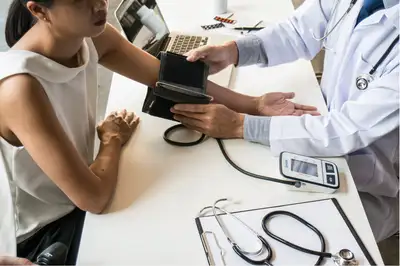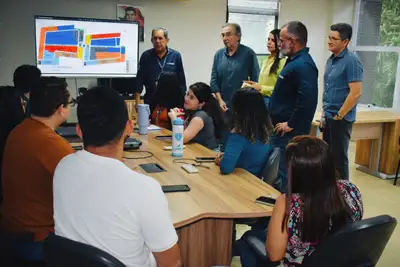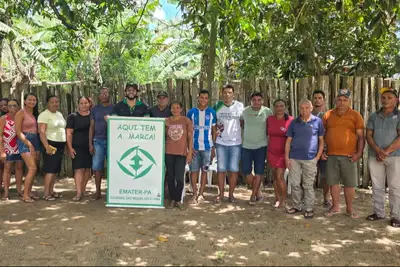PCT Guamá reinforces the strategic role of research in sustainable development
Amazon Innovation and Sustainability Workshop addressed Amazonian research with solutions for soil, health, and sustainability
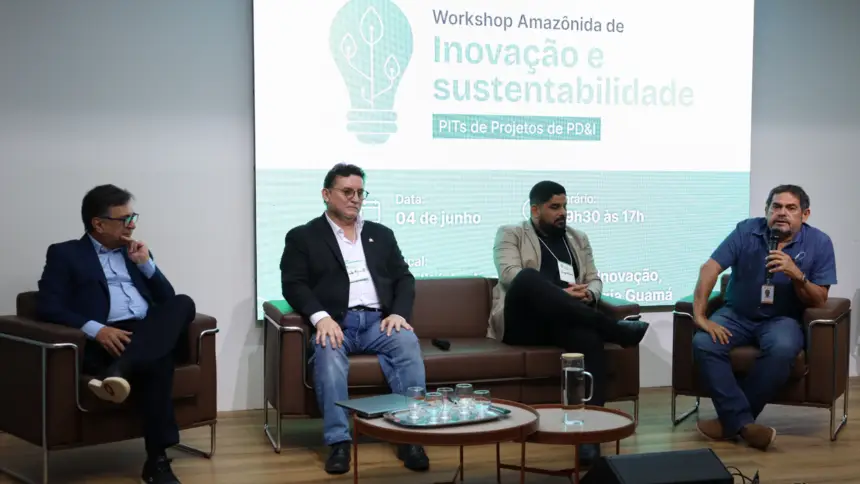
The Science and Technology Park (PCT) Guamá held, on Wednesday (4), from 9 am to 5 pm, in the auditorium of the Innovation Space, the Amazon Innovation and Sustainability Workshop: Research, Development, and Innovation Project PITs. Organized by the Guamá Foundation, the main goal of the event was to give visibility to the scientific and technological initiatives developed in the Park's ecosystem.
Throughout the program, the Amazon Foundation for Support of Studies and Research (Fapespa), one of the main funders of ongoing projects at PCT Guamá, highlighted the importance of effective communication of the results of these researches.
Representing the institution, the scientific director, Deivison Medrado, emphasized that events like this are fundamental to highlight the impacts of actions in science, technology, and innovation. According to him, in addition to strengthening the engagement of the scientific community, these initiatives are essential to justify the continuity of public investments in the sector.
"It is important that we continue to develop these actions. We also need our community to be increasingly engaged in this sense so that we have an ever stronger system," said Deivison Medrado. He also highlighted that the workshop is part of a long-term strategy aimed at consolidating science as one of the pillars of the state's development.
Also present at the event, the director of Programs and Projects at the Federal University of Pará (UFPA), Carlos Maciel, reinforced the need to integrate science, technology, and the natural potentials of the Amazon region. In his speech, he advocated for an articulation between innovation and human development, highlighting the strategic role of PCT Guamá and its institutional partnerships, such as with Fapespa, in transforming the region's resources into sustainable technological solutions with a real impact on the lives of the population. "More than ever, all these innovations must have not only the focus on developing productive capacity but mainly on human development and the well-being of the population that lives here," he pointed out.
João Weil is the president of the Guamá Foundation, the institution responsible for managing the Park, and reaffirmed the commitment to expand opportunities for researchers, especially in science and technology institutes, beyond the university environment.
According to director João Weil, the initiative is part of a strategy to strengthen the integration between projects, teams, and partner institutions, such as Fapespa and the Secretary of Science, Technology, and Higher, Professional, and Technological Education of Pará (Sectet). "The PCT is not just a structure, but an agent of technological and scientific transfer that enhances various enterprises," he concluded.
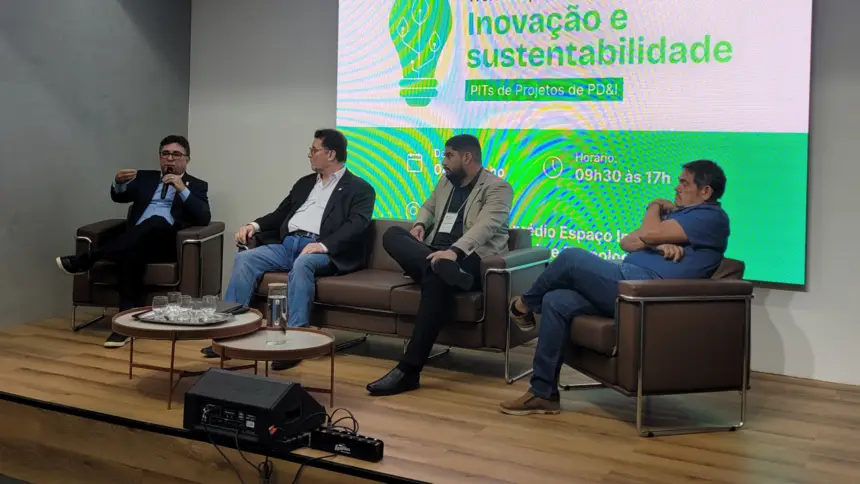
The program highlighted bioeconomy, health, and social inclusion
The workshop program was divided into two thematic blocks. In the morning, Session I addressed the theme Technologies in Bioeconomy and Environment, focusing on projects such as phytoremediation of contaminated soils, reuse of açaí waste for the production of sustainable packaging, biocontrol of agricultural diseases, and advanced techniques for extracting compounds from açaí.
One of the highlights of this session was the presentation by Professor Cândido Neto from the Federal Rural University of the Amazon (Ufra), who showcased the advances of an innovative project. The initiative combines the use of Amazonian plants with phytoremediation potential and biochar in the decontamination of soils affected by heavy metals. Funded by Fapespa and executed with the support of the Guamá Foundation, the research has shown promising results, both in the recovery of degraded areas and in the reuse of organic waste from the region, such as açaí seeds and Brazil nuts.
In addition to the environmental benefits, the project includes actions aimed at small producers, contributing to improving soil fertility and increasing agricultural productivity. "This mix, the combination of plants with phytoremediation potential and biochar, formed a perfect marriage, with which we were able to strongly decontaminate these soils with different types and levels of heavy metals," highlighted the professor.
In the afternoon, Session II focused on Innovation in Natural Resources, Health, and Social Development. Projects related to the estuarine dynamics of the Pará River, assessment of fish stocks, farming of grouper in net tanks, promotion of child development, and productive inclusion actions in communities in northeastern Pará were presented.
In total, 12 Research, Development, and Innovation (PD&I) projects, coordinated by researchers from UFPA and Ufra, were presented to the public. All initiatives are executed by the Guamá Foundation, with funding from Fapespa and Sectet.
Complementing the program, the event also featured an exhibition of technological solutions developed within the scope of these projects, reinforcing PCT Guamá's commitment to promoting innovation and sustainability in the Amazon region.
Reference in innovation in the Amazon
PCT Guamá is an initiative of the Government of Pará, through Sectet, in partnership with UFPA and Ufra, managed by the Guamá Foundation.
It is the first technological park in the Northern region of Brazil, aiming to stimulate applied research and innovative and sustainable entrepreneurship, in order to improve the quality of life of the population.
Located on the banks of the Guamá River, which gives its name to the complex, PCT is situated between the campuses of the two universities and has an ecosystem rich in biodiversity, extending over 72 hectares, designated for buildings and the Environmental Protection Area (APA) of the Metropolitan Region of Belém.
The complex has more than 30 resident companies (physically installed in the Park), over 40 associates (linked to the Park but not physically installed), 12 research and development laboratories for processes and products, and a technical school.
PCT Guamá is part of the National Association of Promoters of Innovative Enterprises (Anprotec) and the International Association of Science Parks and Areas of Innovation (Iasp), and is part of the largest innovation ecosystem in the world.


